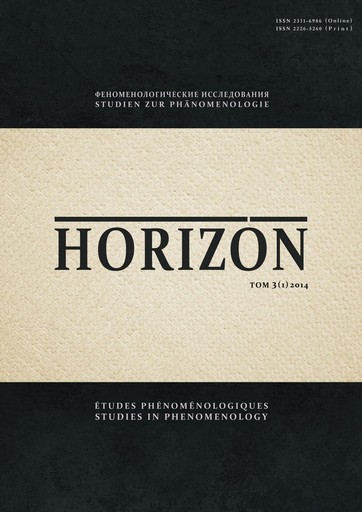ИНТЕРВЬЮ С Я. А. СЛИНИНЫМ
AN INTERVIEW WITH PROF. DR. YAROSLAV SLININ
St. Petersburg State University September, 12. 2013
Author(s): Natalia Artemenko, Andrei PatkulSubject(s): Phenomenology
Published by: Издательство Санкт-Петербургского государственного университета
Keywords: phenomenology; logic; cognitive sciences; philosophy in USSR; reduction; intersubjectivity; theory of subjectivity; ethic
Summary/Abstract: This is the text of an interview given by professor of department of logic of the philosophicalfaculty St. Petersburg State University Yaroslav A. Slinin to Natalia Artemenko and AndreiPatkul. Prof. Slinin talks about the genesis of his philosophical views, in particular, abouthis way into phenomenology. His recollections of the phenomenological community in theformer Leningrad is of very interest in the context of Soviet philosophy’s historiography. Itought to remarked that the course under the titled «Phenomenology and Logic» deliveredby Prof. Slinin since 1970 brought to bear overwhelming influence on the shaping of today’sphilosophical community in St. Petersburg.Hence, the problems of correlation between phenomenology and logic are discussed inthis interview. Prof. Slinin points that the problematic of logic is the confluence point ofphenomenology and analytical philosophy, which deal with the same problems but by differentmethods and in different attitudes. The main distinction points between these twophilosophical trends are, on the one hand, that phenomenology has a metaphysical background,which is denied by representatives of classical analytical philosophy, and on theother hand, that phenomenologists as distinguished from analytical philosophers acceptthe intellectual intuition of essences. Prof. Slinin states with regard to correlation betweenphenomenology and contemporary cognitive sciences that the Husserl’s distinction of transcendentaland natural attitudes is very important up to now. He gives his own interpretationof Husserl’s doctrine of reduction in this context. Prof. Slinin tries to show also thatHeidegger describes by ontological terms the same phenomena which are described byHusserl in transcendental terms.As conclusion, Prof. Slinin talk about his other non-phenomenological interests in philosophy,namely, about ancient philosophy (particularly, in its connection with phenomenology),patristic, early modern and Russian philosophy.
Journal: Horizon. Феноменологические исследования
- Issue Year: 3/2014
- Issue No: 1
- Page Range: 237-250
- Page Count: 14
- Language: Russian

